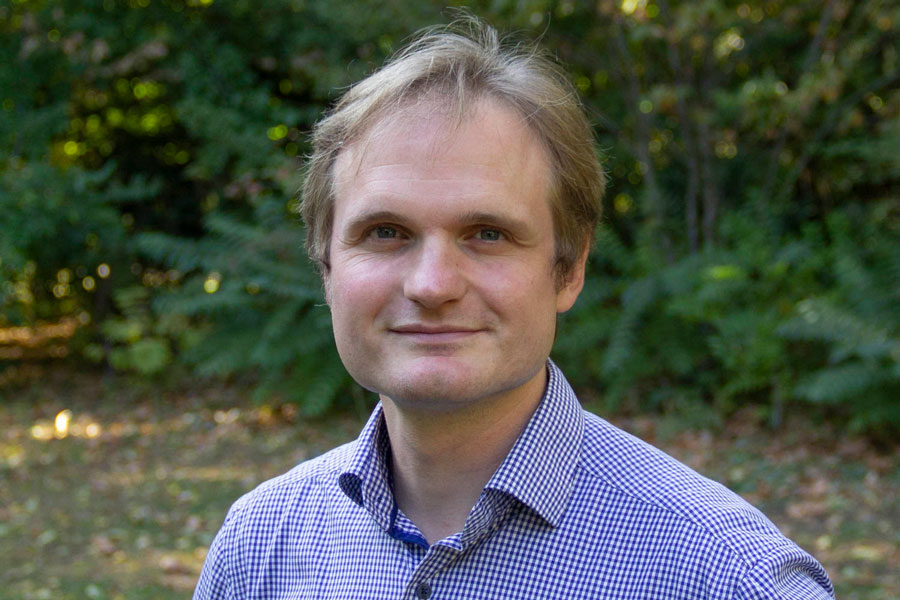Tilo Schwalger new Junior Professor at Bernstein Center for Computational Neuroscience (BCCN) Berlin
Tilo Schwalger accepted the call for the BCCN Junior Professorship "Data Assimilation in Neuroscience" at Technische Universität Berlin and started his new position on October 1, 2018.

Tilo Schwalger, © Schwarzer, Bernstein Netzwerk
/BN, Duppé/ Tilo Schwalger accepted the call for the BCCN Junior Professorship “Data Assimilation in Neuroscience” at Technische Universität Berlin. This professorship not only marks a decisive career step for the researcher; it also shows that the structures around the Bernstein Center (BCCN) Berlin had a major influence on Schwalger’s personal decision.
A professorship for “Data Assimilation in Neuroscience” initially sounds like higher mathematics and pure basic research. Though this holds true in my respects, Tilo Schwalger also wants to concentrate on the applicability of his research in Berlin. He would like to develop a mathematical apparatus for the theoretical analysis of fluctuations in neuronal activity in order to better understand the neuronal variability in the brain and its connection with various cognitive processes. This focus on applicability is meant to benefit fellow researchers in the field of computational neuroscience.
Traditionally speaking, applied mathematics tries to understand either individual nerve cells or infinitely large cell clusters with the help of idealized models when it comes to brain research. Over the last few years, the focus has shifted from these extreme cases to medium-sized neuronal circuits consisting of a realistic number of nerve cells. This is an important prerequisite to describe neuronal variability of population data.
Today, experimental data are collected by many research groups, for brain-computer interfaces or neuroprosthetic applications. Such data is not only complex, but also extremely extensive. Schwalger wants to simplify the evaluation of large amounts of data for researchers and help them to gain as much insights as possible.
“I am immensely looking forward to the professorship because it provides me with ideal conditions for my research, both in a mathematical-theoretical sense as well as in terms of applications and possible experimental collaborations,” said Schwalger. “With the BCCN, Berlin is currently one of the best locations for computational neuroscience in the world. I was lucky to experience this outstanding research environment during my doctorate.”
In addition to his excellent qualifications as an internationally networked researcher, Tilo Schwalger is above all dependent on a well-functioning structural environment for his innovative research approaches. This is why he hopes that his move from Lausanne (CH) to Berlin will provide him with interesting opportunities, one of which will certainly be the Berlin/ Potsdam research landscape with the Collaborative Research Centre “Data Assimilation”.
Facts and Data BCCN Berlin
- 5 Bernstein professorships, one junior professor
- Supporting partner institutions:
Charité-Universitätsmedizin Berlin,
Humboldt-Universität zu Berlin,
Technische Universität Berlin - 56 members (professors and group leaders)
- 80 finished PhD and 76 Master degrees since 2008.
The Junior Professorship at BCCN Berlin
Together with the five Bernstein professorships, the junior research group is part of the basic structure of the BCCN Berlin and every five years a new group is created. It is fully financed by the Technische Universität Berlin and has now been upgraded to a W1 junior professorship for the current appointment of Tilo Schwalger.




